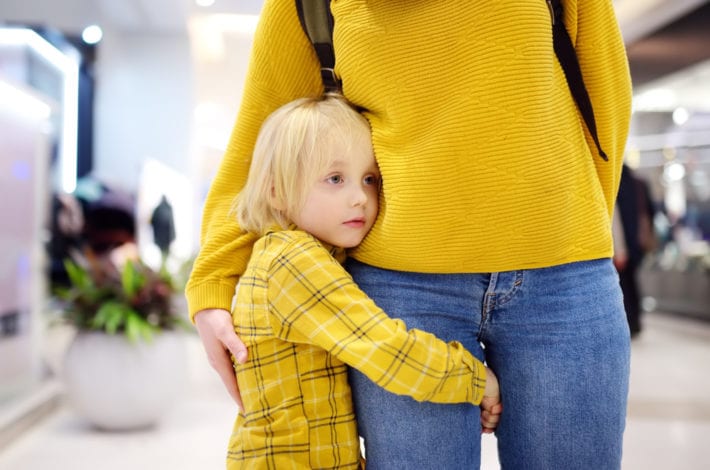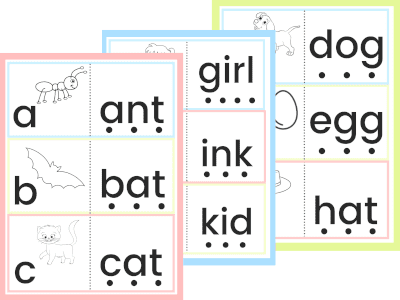

Understanding why children lash out
In the early years children can find it hard to handle difficult emotions like frustration, sadness and anxiety in a rational way.
Their brains are still immature and the part of the brain that controls outbursts of emotion is still very much under construction.
Without the words or the coping strategies to handle big feelings children can let these feeling out in the form of anger or aggression. In an emotionally charged situation grabbing, pushing, kicking and biting can happen quite suddenly.
Here are some tips to help calm their behaviour:
Talk about feelings at calmer times
Talk to your child about all the different feelings we have. Reading books together can be a good way to start a conversation about them. Talk about how their body feels when they experience different emotions and what they can do to help make themselves feel better again. You can brainstorm ways to cope and things to try when anger strikes.
Some good books about feelings are these ones:
- The colour monster: a pop-up book of feelings, by Anna Llenas
- Everybody feels…angry by Moira Butterfiled.
- This is a series of books about different emotions (including feeling angry, sad, scared and happy)
- In My Heart A Book of Feelings by Jo Witek
- Tiger has a Tantrum by Sue Graves
- No Matter What by Debi Gliori
Teach your child relaxation techniques
Show your child some simple breathing techniques and relaxation techniques that they can use when they are feeling stressed or angry.
If you practice these a lot in calm times, your child will become better and better at them and be able to put them into practice more easily the next time they feel their emotions rising.
You could ask them to lie on the floor and breathe out slowly with one hand on their tummy. Ask them to notice how it rises up as it fills with breath. Now ask them to breathe out slowly and feel their tummy going down as they blow out all the air.
If your child won’t lie down, try popping a feather on a table.
Ask your child to breathe in nice and slowly and then when they breathe out slowly to watch the feather move across the table.


Be a positive role model
You are your child’s greatest teacher and if you can show them how you deal with frustration, they will begin to learn better coping techniques. Of course, it’s helpful if you yourself don’t fly off the handle.
With young children you can be very clear in explaining your emotions like saying “That made me feel a bit cross” and your response “I’m going to take a big deep breath and sit down for a minute“.
Of course, there is no such thing as a perfect parent. We’re all human and there may be times when you lose it in front of your kids.
Especially on days when you’re exhausted and your child just keeps pressing your buttons. If you do shout then always apologise afterwards and admit that you were wrong to do so.


Praise your child when they are good
If your child is going through a phase when they are cross and misbehaving quite often it can be tiring and testing. You can sometimes feel that all you do is reprimand your child or remind them of the rules.
It’s even more important in these times to try and keep up a positive and supportive relationship.
Try and find loads of opportunities through the day to praise your child for their good behaviour and really outline why you are so pleased with them. You can say things like “You were really patient waiting for me to finish speaking on the phone” or “Thank you for letting your sister share your snack“.
Reinforce good behaviour whenever you can. If things have felt a little negative then also try to spend lots of time playing with your child, chatting together, snuggling with a book and being silly and having fun.
Don’t let the bad bits take over and try to fill your days with as many good times as possible.
Keep learning and improving
If you’re facing problems like violent behaviour, your child not listening or dealing with their emotions, research and try different ways to deal with it. There are so many online resources that can help you.
Our favourite parenting resource is the online course by renowned parenting expert Amy McCready.
Positive Parenting Solutions
Positive Parenting Solutions helps you to get kids to listen without yelling or nagging.
It’s a step by step course to help parents work towards that harmonious family life they always pictured. It teaches us how to deal with conflicts in a positive way that’s respectful to kids.
We are affiliate partners for this course which means if you follow this link we will earn a commission at no extra cost to you.
However it’s been tried and tested by our moms who have all said it helped them lead a calmer, happier family life.
One mom says:
Today was the first time ever I didn’t yell, nag or lose my cool!
Find out more and get a FREE online parenting class here
Don’t underestimate the power of sleep
We all know that being tired can really affect our moods. Small children need a lot of sleep to grow, develop and recharge after a busy day.
So make sure you have a good bedtime routine, with plenty of quiet time. That way your child can calm down and feel sleepy and ready for a really good night’s sleep.
Consistency is key
It’s important to make a plan of action when you are out and about and your child starts to act aggressively.
For ideas on what this plan could include see our article: Your 6 point plan for when your child is aggressive.
As much as you possibly can stick to your plan and respond to aggressive acts in the same way each time they happen. The more predictable you are, the sooner you’ll set up a pattern that your child will recognise and expect.
With clear boundaries of what will happen when they are angry or aggressive you should find that incidents lessen.
Stay positive
Having children that punch and kick can take its toll on the very best of us. Saying no and shouting after them all the time can be exhausting.
It’s also a bad feeling to think you are ‘that mum‘ in the playground or classroom, whose child hits and bites and lashes out at all the other children.
Stay calm but firm with your child when stopping this behaviour and they will soon start to calm down themselves. Over time they will learn that it is not OK to hit and they will grow out of this way of dealing with their emotions.
In the meantime remember that it is not a reflection on you if you have a child that lashes out.
The very fact that you are reading this article shows that you are trying to help them through it, so remind yourself of that and that you’re doing your best. And that’s doing great!
Resources
Get kids to listen without yelling and nagging.
Amy McCready has helped over 75,000 parents through her course. She is a renowned parenting coach who has been working with families for 15 years. The course can be taken online, listened to, and watched, along with online support groups to help along too.






